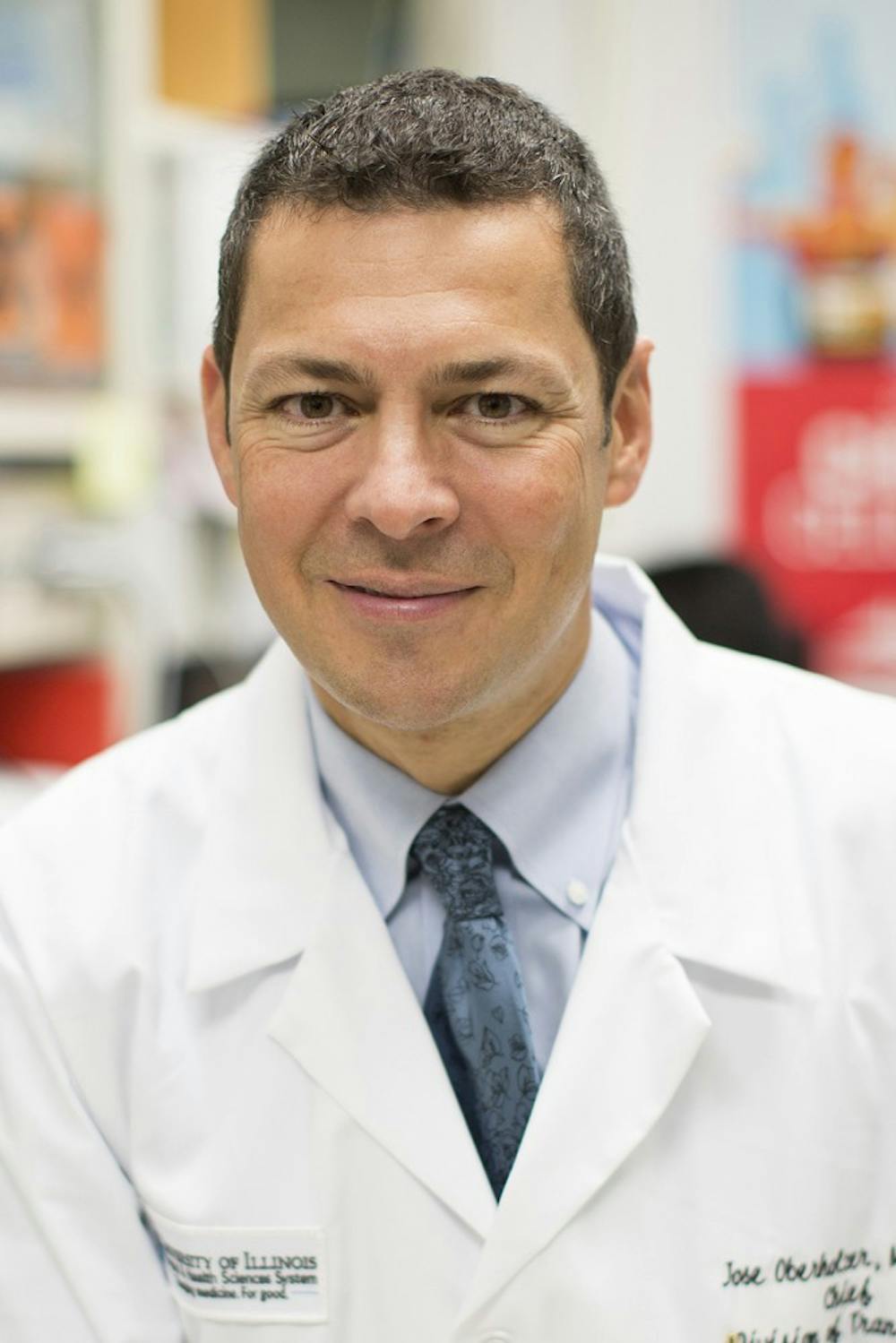The University Health System named Dr. Jose Oberholzer Director of the Charles O. Strickler Transplant Center Feb. 20. Oberholzer previously served as Chief of the Division of Transplantation and Director of the Islet and Pancreas Transplant Program at University of Illinois at Chicago.
Oberholzer was chosen following a national search, CEO of University Health Pamela Sutton-Wallace said.
“Dr. Oberholzer will work with our transplant team to expand our program and make it easier throughout Virginia and beyond to access lifesaving care,” Sutton-Wallace said in an email to The Cavalier Daily.
Sutton-Wallace cited Oberholzer’s ability to expand access to care in the decision.
“He has a background as an innovative patient care provider and researcher who has made it easier for more patients to receive transplants through robotic-assisted surgeries,” Sutton-Wallace said.
Oberholzer was drawn to the University by the potential for a cross-discipline transplant program.
“When I received the call from U.Va., I was intrigued to hear that … They wanted to create an integrated transplant center, and that’s a very unique opportunity that doesn’t happen very often,” Oberholzer said.
Oberholzer earned his medical degree from the University of Zurich Medical School, and received his master’s in healthcare management from the Harvard School of Public Health.
As a researcher, his area of academic interest includes making surgery safer and less invasive for diabetic and overweight patients.
“I’ve always felt that we need to reduce the invasiveness of surgery,” Oberholzer said. “For some patients how big the cut is doesn’t matter, but there are some patients where it becomes very important, and mostly overweight patients. These patients have a very high complication rate because of the incision you have to make, and they have a very high chance of infection.”
Another area of interest is increasing the availability of organ donations in Virginia.
“Virginia is not too bad in organ donation, but it could be better,” Oberholzer said. “You can look at it from whichever way you want — there is no ethical, philosophical [or] religious argument that would be against organ donation.”
One way to achieve institutional commitment from the community is to educate the public about organ donation, Oberholzer said.
“What happens very often is that there are misconceptions about organ donations, and people think it’s something creepy, and that’s why it’s important to inform people” Oberholzer said.
At UIC, Oberholzer worked on decreasing the risks volunteer donors face.
“Robotics can help — it’s not only robotics, but medical management and also enrichment and counseling of living donors,” Oberholzer said. “I hope I can bring some of it here [from UIC] and help people.”
During his time as director, Oberholzer hopes to make the University Transplant Center a comprehensive transplant institute that offers all available organ transplants.
The University program is quite comprehensive already, Oberholzer said, but he hopes to make improvements.
“There are still patient populations that are not addressed here and certain procedures that we do not do here, such as small bowel transplant and certain combinations, for example combined heart-kidney transplant,” Oberholzer said.
A particular area of interest for Oberholzer is the integration of younger students into the medical field through a summer internship for high school and undergraduate students.
“It’s a paid summer internship for students who are interested in the biomedical field,” Oberholzer said. “It’s not for students who want to be physicians, but for students who are interested in an engineering career — chemical engineering, biomedical — who want to learn firsthand.”
Pioneered at UIC, the program is 10 weeks and funded by the National Institute of Health. Students gain experience in the operating room, watch transplants or donations and participate in clinical rounds.
“It’s really important to groom the next generation,” Oberholzer said. “It’s exposure to the idea, what the work of transplantation is.”
Oberholzer starts his new position at the University next month.







